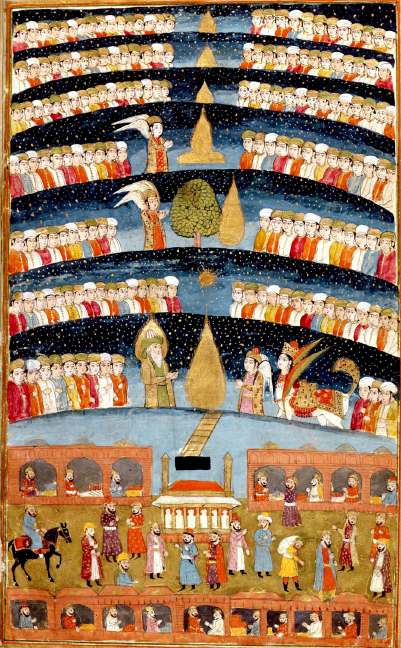
I attended my first Jum’uah yesterday, which is a congregational prayer that takes the place of the Dhurr, the regular afternoon prayer. It’s the equivalent of going to church or Shabbat services.
This particular Jum’uah service was conducted by the organization Make Space, whose target audience is Muslim youth in the DC area.
The sermon was particularly interesting. A guest Imam, who runs an NGO that does work in Afghanistan, gave the sermon. He was raising money to help the victims of the recent Afghan landslide that killed over 2000 people.
The Surah he expounded on was on the topic of accumulation of wealth and how you will be judged by Allah after you die.
Muslims believe that after your death, the totality of your good and bad deeds will be accounted for in a sort of final “report card,” that will determine whether or not you will go to hell or heaven.
Unlike Christianity, which simply asks you to “accept Jesus as Lord and Savior,” Islam believes your behavior will determine your fate in the afterlife.
If you lived an impious and sinful life, you will burn in hell.
If you lived a good and righteous life, you will go to heaven.
The Imam made the following points about wealth and the afterlife:
– Accumulating wealth isn’t bad per se, but it can distract you from the most important thing in life: God
– If you have used your wealth selfishly, this will be accounted for in the afterlife and will affect your fate negatively
– Your time on earth is short, while the afterlife is much longer. The impact of your behavior now is multiplied in the afterlife. For example, you may live to be 100 years old and if you acted selfishly for the most of your life, you may spend time in hell for 1500 or more years
– As a result of our short time on earth, it is incumbent on all Muslims to focus on God, and living a righteous life. Muslims should submit to God’s will and life their lives accordingly
– To remind ourselves of our mortality, we should routinely visit gravesites or cemeteries. We should not spend an excessive amount of time thinking about the people whose lives have already passed, but rather, thinking about the short amount of time we have left
After the sermon was over and everyone prayed together and we were feeling guilty and pious, the Imam asked the congregation to pledge money to the organization.
The Imam raised $6000 in the span of 5 minutes.
***
Secular types, including myself are very turned off by the talk of heaven and hell and a “day of judgment.” It just doesn’t seem real or relevant to our lives.
We think that heaven and hell is a sort of “trick” to get people to change their behavior. We don’t need it; it’s just a tool to encourage good behavior
I agree it does get people to change their behavior. I witnessed that at Jum’uah when about 10 people gave away their hard earned money to a noble cause as a result of a sermon about burning in hell.
Where I think secular or atheists are wrong is their thinking that they don’t need a theology of heaven or hell to live a good life.
Sure, you can still be a good person if you’re not religious or you don’t believe in the afterlife, but I think it’s much more difficult without the theology or institutional structure.
If you believed that your every action will someday be accounted for in a sort of moral report card when you die, you are far more likely to behave better.
However, it’s difficult to intellectually trick yourself into believing in a heaven or hell. You just can’t do it.
So I think there are a couple of options for the non-religious if they want to get the benefits of believing in a heaven and hell without actually believing it:
1) Act more religious or
2) Interpret heaven and hell as something that applies to your life now
With the first option, all you need to do is start participating in religion, like I’ve been doing with this project. It doesn’t require belief; it just requires you to do. Religion will start rubbing off on you and even if you never grow to “believe” anything, your behavior will change for the better.
With the second option, you draw the link between doing good and feeling good in your life now. For example, there is tons of research supporting the idea that becoming more charitable makes your happy. Conversely, acting badly or immorally is a great way to become unhappy.
Thus if you extend these ideas and apply to it the span of a lifetime, if your life consists mostly of negative or sinful acts, you will experience a lifetime of unhappiness, a sort of personal hell. If you spend your life acting righteously, you will be mostly happy, a sort of personal heaven.
Believing in heaven and hell can have very real and positive effects on your life now, not just in the afterlife. It may be wise to incorporate this sort of thinking into our lives so that we act more righteously and a result, become happier.